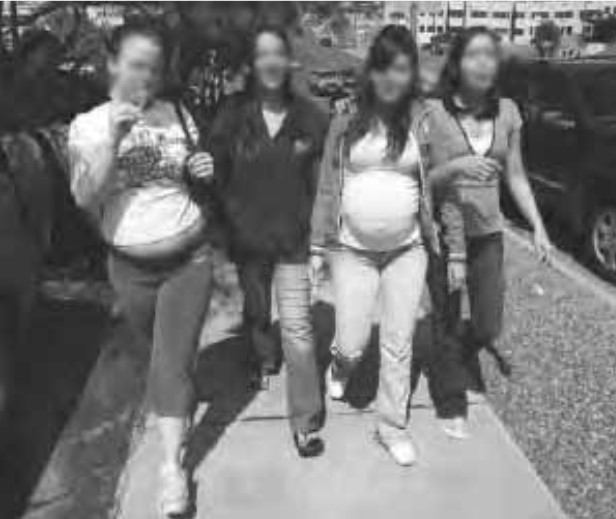One third of teen mothers do not earn a high school diploma or GED, reports Child Trends, a nonprofit, nonpartisan research center that studies child development and related factors. The report is based on 2006 government data that indicate an increase in U.S. teen births, ending a 14–year decline.
This increase is concerning, since, according to the survey, only 51 percent of teen mothers earn a diploma before turning 22 and only 15 percent earn their GED before that age. In comparison, 89 percent of women who are not teen mothers earn a diploma before the age of 22 and 5 percent earn a GED.
The study also shows that teen mothers who become pregnant before the age of 18 are even less likely to earn their high school credentials. According to Child Trends, the fact that a GED does not carry the same weight as a high school diploma (and that workers with GEDs earn less than high school graduates) makes these statistics even more concerning.
Deborah Shore, executive director of the Sasha Bruce Youthwork (SBY), says this information is useful to the study of teen pregnancy, since it shows “how much it changes a person’s life to have a child.”
SBY serves at–risk youth and their families in the Washington, D.C. area. Among many of the programs they offer is the Teen Mothers Program, which provides educational and vocational guidance, assistance with housing and employment, training in parenting and life skills and pre- and post–natal medical care.
Shantese Speight, who is 20 years old and from Northwest D.C., is applying for the program that would offer daycare for her 3–month–old daughter Saniy. “It’s a big restriction,” she said, regarding teen motherhood. She expected the changes in responsibilities, but said preparing for them was very different from actually performing her duties.
Speight said she found a lot of different resources online. She hopes that after she gets permanent housing she can return to college and study social work. As Saniy gets older, Speight said she thinks she is starting to settle down. Speight completed high school and spent a semester at Central Piedmont Community College in Charlotte, N.C.
Chantel Robinson is also applying for housing. Robinson is 19 years old and had her daughter Amira last December.

“It changed a lot of things, having a child, because you got to provide,” Robinson said. Robinson is from Southeast D.C., but now lives in Northeast with her sister. She dropped out of school when she moved, because she had problems with her paperwork related to switching schools. She wants to get her GED and study medical assistance.
While Sasha Bruce offers assistance to young mothers and works on preventing teen pregnancy, Shore said there are not many options for women in the District.
She cited Congress’s ban on the use of city funds to support abortion clinics, making abortions unaffordable for many. Moreover, according to Shore, the abortion clinics are hard to find and are, thus, out of reach for women with significant time constraints.
Margaux Delotte–Vennett, coordinator of the Hope Program, which focuses on sexual education, called for more school–based programs and efforts to create support groups focusing on the goals of children and young parents. She praised the New Heights Program and the efforts made by Cardozo and Anacostia High Schools.
“Education is already shaky priority wise,” said Delotte–Vennett talking about the situation in D.C. She added that some young people are already unmotivated when it comes to school and pregnancy provides them with another reason not to attend.
Teen mothers are more likely to have another child within two years of their first pregnancy, according to Delotte–Vennett. Subsequent pregnancies further limit their options, since there is a shortage in housing for women with more than one child.
“As an agency, Sasha Bruce is realizing subsequent pregnancy prevention is a priority,” said Delotte-Vennett.
According to Shore, there is a noticeable increase in teen pregnancies across the country and in D.C. She attributes the rise to a loss of hope and a sense of having no place in the world.
“I think it’s about young people seeing a future that is different for themselves,” said Shore. “If you have one child, once things settle out you can go on to college, but when you have two children, the impact is greater,” said Shore.
Child Trends confirms that notion, reporting that completing high school education reduces the risk of subsequent teen pregnancies, which have been linked to even poorer outcomes for mothers and their children.








